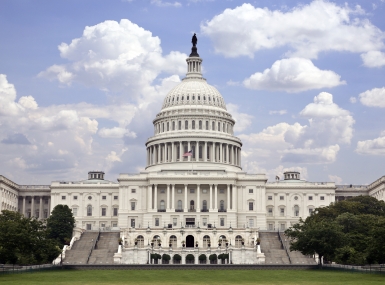New bill offers counties greater flexibility in child welfare reforms
Author
Upcoming Events
Related News

Key Takeaways
On November 5, federal legislators introduced the Family First Transition Act (S. 2777/H.R. 4980) to assist states, tribes, territories, counties and cities with implementation of the child welfare reforms made through the Family First Prevention Services Act (FFPSA) (P.L. 115-123).
Enacted in February 2018, FFPSA implemented child welfare reforms to incentivize evidence-based prevention services and curtail the use of congregate care in the foster care system. For counties – who often share child welfare administration responsibilities with states – the new flexibility to use federal resources for prevention activities is a major victory. However, FFPSA posed new challenges for counties shifting to the new requirements, especially for counties receiving reimbursement for Title IV-E child welfare demonstration projects. These waivers expired on September 30, 2019 at the end of FY 2019.
If enacted, the Family First Transition Act would address these challenges by providing $500 million in one-time, flexible transition funding to help jurisdictions with FFPSA implementation. This funding would help offset costs associated with program startup, waiver transition and improvements to foster care safety and quality. The legislation would also offer temporary grants to jurisdictions with expiring waivers if they face significant funding losses, ensuring stability and continuity of care for the children in care as the transition continues to new models under FFPSA.
In addition to these new funding resources, the bill would also create a two-year delayed phase-in for FFPSA’s “well-supported” requirement for prevention services, which sets the evidence threshold prevention services must meet under FFPSA to be eligible for funding reimbursement. The delay offers states and counties greater flexibility to proceed with existing, evidence-based foster care prevention programs.
Going forward, legislators in the U.S. House and U.S. Senate must still consider the Family First Transition Act before the bill is brought to a vote and sent to the president for his signature. On November 18, NACo sent a letter to Congress expressing counties’ support for the additional resources and flexibility offered under the legislation.
For more resources on FFTA and FFPSA, please see the following resources:
- Letter to Congress in support of the Family First Transition Act (NACo letter)
- Family First Prevention Services Act & Your County (NACo webinar)
- President signs massive two-year budget pact (NACo blog)
- Family First Transition Act (Legislative text)
- Summary of the Family First Transition Act (U.S. Senate Finance Committee summary)

Attachments
Related News

Maryland county invests in community ‘villages’
Baltimore County, Md. created a volunteer network or “village” to help with everything from groceries to doctor’s appointment to fighting isolation.

U.S. Congress passes reconciliation bill: What it means for counties
On July 3, the U.S. Congress passed sweeping budget reconciliation legislation.

U.S. Senate passes amended reconciliation bill text: What it means for counties
On July 1, the U.S. Senate narrowly passed their version of sweeping budget reconciliation legislation.
